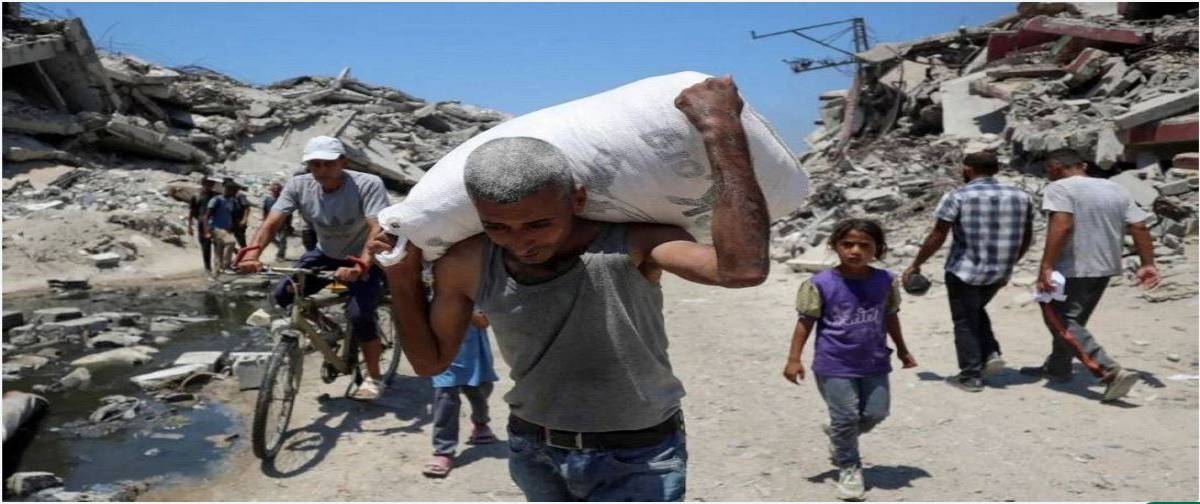1806 Views
Moldy Bread Diplomacy: How the West’s “aid” to Gaza Became a Weapon of Mass Humiliation
Amid the ongoing destruction and humanitarian catastrophe in the Gaza Strip, so-called humanitarian aid from certain Western countries has become a symbol of hypocrisy and systematic humiliation rather than a balm for the wounds of the people.
The widespread circulation of images showing moldy bread and rotten food, delivered as part of these aid packages to the besieged residents of Gaza, has not only cast serious doubt on the real intentions of the donors but has also sparked a wave of anger and distrust among the public in Gaza and beyond. These events have pulled back the curtain on the West’s true face and its instrumental view of one of the bitterest humanitarian crises of our time.
Humiliation Disguised as Aid
Sending substandard and symbolic humanitarian aid is nothing less than an indirect insult to a people fighting to survive under the heaviest siege and bombardment. Images of moldy bread and expired canned goods in aid packages sent by countries like France, Germany, and Belgium, with the participation of the UAE, quickly spread across social media, fueling public outrage. While pretending to be humanitarian gestures, such actions directly target the dignity of Palestinians.
Palestinian activists see this as a blatant insult, asking how countries that are among the chief backers of Israel’s war machine can now claim to care for the very people being killed with their weapons. This approach reinforces the suspicion that such aid is meant to cleanse guilty consciences and polish political images internationally, while no concrete action is taken to lift the blockade or halt the genocide.
Deepening Distrust
The reaction to these insulting aid packages has quickly driven public opinion in Gaza toward complete distrust of Western intentions. Instead of presenting a positive image of the West, the aid has become a potent tool in the psychological and media war against its double standards. Images of moldy bread have become a symbol of “toxic aid” and Western hypocrisy, widely shared by resistance movements and anti-Zionist networks.
By amplifying these images, the media campaign has shown the global public just how hollow Western humanitarian claims are, and how the suffering of a nation can be exploited for political gain. In reality, these so-called aids have served resistance propaganda far more than they have served the people of Gaza.
Reinforcing the West’s Instrumental Approach to Gaza’s Crisis
For years, Western countries and some of their Arab allies have used humanitarian aid to Gaza as a tool for political image management. Yet, sending unhygienic, low-quality aid reveals that their priority is not saving lives, but staging a performance of “moral commitment” — even as they continue to arm the Zionist regime.
This blatant contradiction has strengthened the legitimacy of Palestinian resistance in the eyes of both Palestinians and the world. Many believe Palestinian resistance is not only a legal right but the only way to confront Western double standards.
Escalating the Psychological and Media War Against the West
The spread of images of moldy bread and rotten food has become a potent symbol of “insulting aid.” Resistance activists and anti-Zionist movements have leveraged it as a tool in their psychological and media warfare, consistently challenging the image of countries that claim to champion human rights.
Meanwhile, extensive media coverage of Gaza’s horrific famine, including in Western outlets like The Guardian, reflects the view that this crisis is the result of deliberate, instrumental policies that trade human dignity for political interests.
Growing Popular Solidarity with the Resistance
This systematic insult has not only inflamed public anger but has also fostered a new level of solidarity — redefining the legitimacy of resistance and the meaning of human dignity. For Gazans and their advocates, resistance is now seen as the only path to preserving values and dignity.
In other words, this organized humiliation has sparked internal unity and a reimagining of dignity independent of superficial aid — a powerful message that resonates beyond Gaza’s borders, speaking to the oppressed in wars worldwide.
Conclusion
Sending substandard, insulting aid to Gaza shows that some Western countries and their regional allies are not interested in resolving the root causes of the crisis, but rather in exploiting the suffering of the people for political ends. These actions have not only mobilized Gaza’s public opinion more strongly against them but have also bolstered the legitimacy of the resistance. Under these circumstances, the international community must reject symbolic aid and instead push to end Gaza’s unjust blockade and stop the war.
*Translated by Ashraf Hemmati from the original Persian article written by Mohammad Saleh Ghorbani

Comment
Post a comment for this article